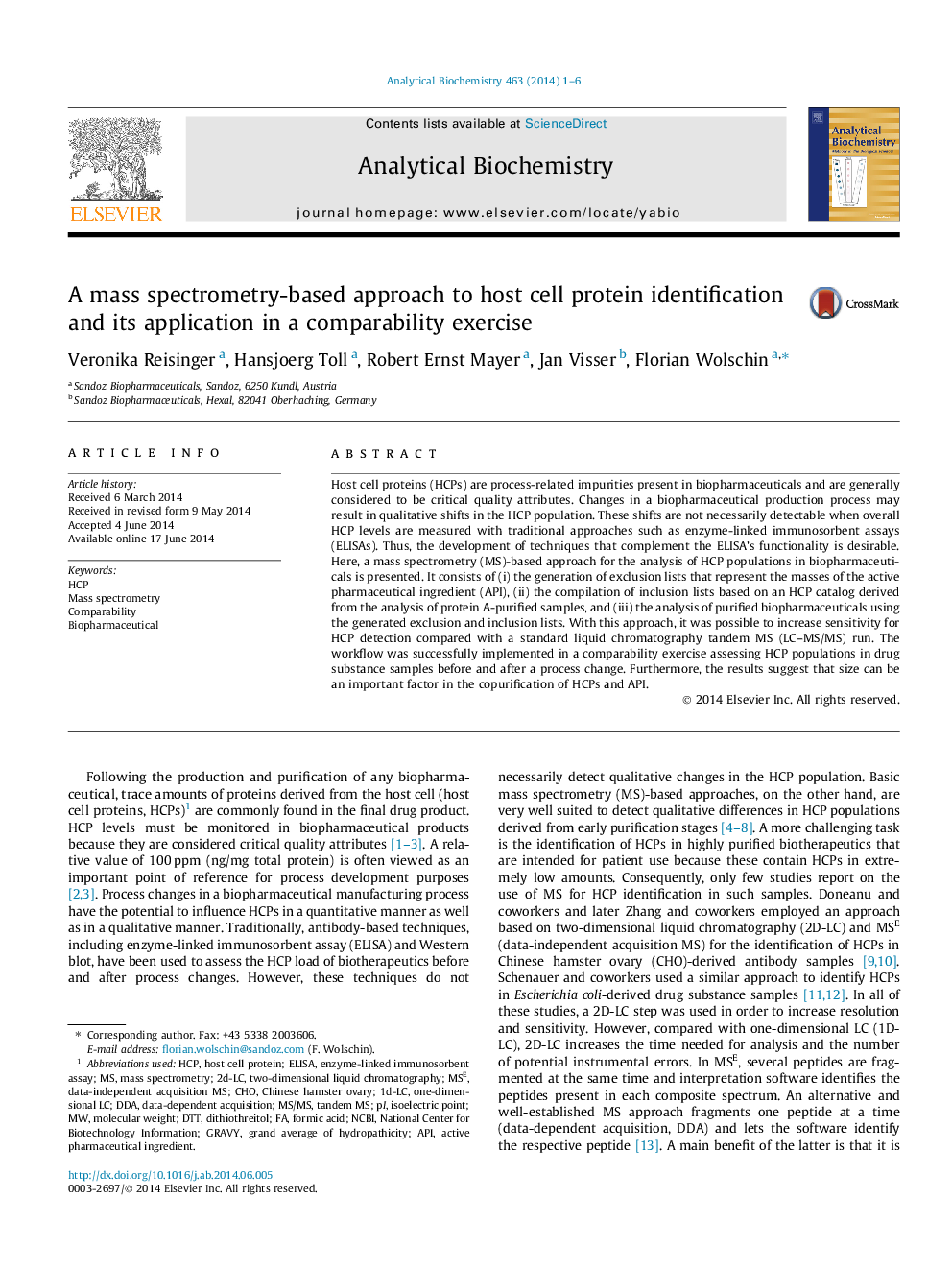| Article ID | Journal | Published Year | Pages | File Type |
|---|---|---|---|---|
| 1173114 | Analytical Biochemistry | 2014 | 6 Pages |
Host cell proteins (HCPs) are process-related impurities present in biopharmaceuticals and are generally considered to be critical quality attributes. Changes in a biopharmaceutical production process may result in qualitative shifts in the HCP population. These shifts are not necessarily detectable when overall HCP levels are measured with traditional approaches such as enzyme-linked immunosorbent assays (ELISAs). Thus, the development of techniques that complement the ELISA’s functionality is desirable. Here, a mass spectrometry (MS)-based approach for the analysis of HCP populations in biopharmaceuticals is presented. It consists of (i) the generation of exclusion lists that represent the masses of the active pharmaceutical ingredient (API), (ii) the compilation of inclusion lists based on an HCP catalog derived from the analysis of protein A-purified samples, and (iii) the analysis of purified biopharmaceuticals using the generated exclusion and inclusion lists. With this approach, it was possible to increase sensitivity for HCP detection compared with a standard liquid chromatography tandem MS (LC–MS/MS) run. The workflow was successfully implemented in a comparability exercise assessing HCP populations in drug substance samples before and after a process change. Furthermore, the results suggest that size can be an important factor in the copurification of HCPs and API.
